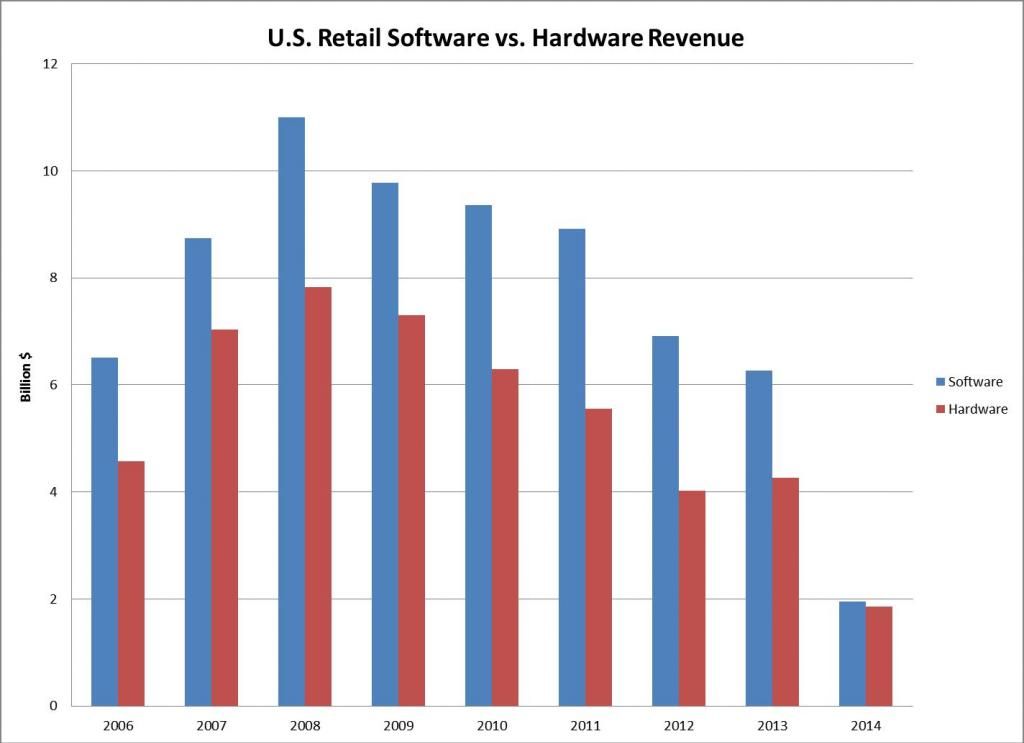I could live with no unit figures if we could get platform breakdowns. That stuff is even rarer to get from publishers than shipped figures globally. And i really don't see how breadown data is more sensitive and important to protect than total unit sales.
NPD could throw us a bone. Let's say tomorrow NPD decides to release February's Top 10 games with hard figures -- who would cry foul? It's a hit-driven business, only the here and now matters. Nobody who pays NPD will stop because they can get 6-months old data for free - they need it in real time. And the publishers would have already addressed those figures and questions raised by investors on those figures in their quarterly reports and conference calls.
Would publishers bother to object to releasing months-old top 10's just because some forum users will point at on of the games and scream 'BOMBA'?
NPD could throw us a bone. Let's say tomorrow NPD decides to release February's Top 10 games with hard figures -- who would cry foul? It's a hit-driven business, only the here and now matters. Nobody who pays NPD will stop because they can get 6-months old data for free - they need it in real time. And the publishers would have already addressed those figures and questions raised by investors on those figures in their quarterly reports and conference calls.
Would publishers bother to object to releasing months-old top 10's just because some forum users will point at on of the games and scream 'BOMBA'?


